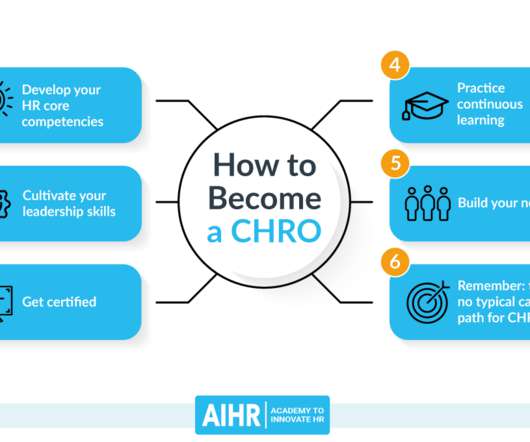Why Is Human Resources Important? 8 Top Reasons
Analytics in HR
AUGUST 9, 2023
Could it be because organizations with strong HR practices are 1.4 times more likely to outperform their competitors and 2.5 times more likely to report effective talent management? Let’s explore how HR supports and nurtures an organization’s most critical asset – its workforce. Contents What is HR?
















Let's personalize your content